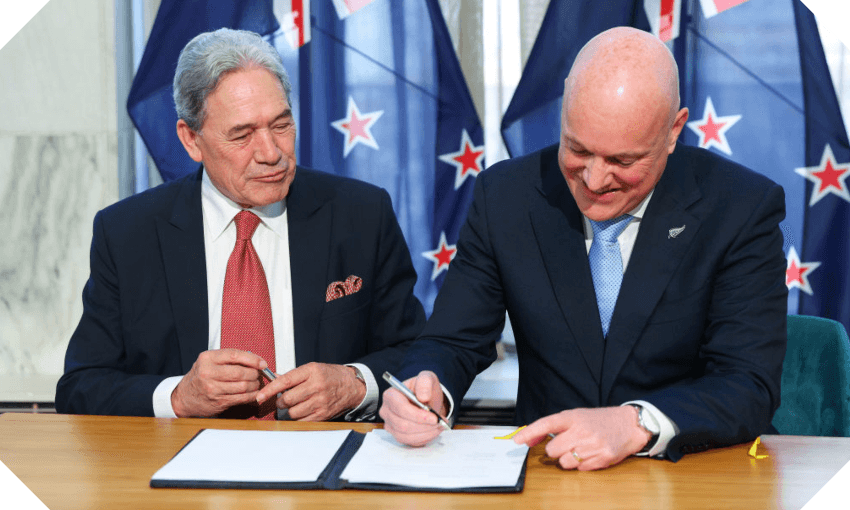It can seem a bit superficial in the face of bigger issues, but local, street-level design and policy choices are among the most important decisions we can make, argues Joel MacManus.
They say that all politics is local – and it is. Part of being an engaged citizen is caring about what happens in your community. Every decision has ramifications, cause and effect, that filter out throughout society.
But generally, the smaller you go, the fewer people are interested. Turnout for local body elections is almost half that of general elections (40% vs 77% in the most recent elections). When you drill down further to specific local issues, it’s even worse. If a council is considering a new street layout or a change to building regulations, the audience of engaged people gets even smaller, and can quickly become dominated by a small number of crotchety complainers.
As you can probably tell from the fact that I write a column about it, I’m passionate about local issues. But I understand that many people aren’t, even those who are highly politically engaged. It’s fair enough. There are only so many causes any one person can have an opinion about. Compared to a war in Palestine, a floundering economy, child poverty, and every other ill of the world, campaigning for a new bike lane or a playground upgrade seems small, almost selfish. Urban designers will prattle on about architecture and landscape design, but it can all sound a bit superficial, the aesthetic preferences of the upper class.
I’d like to challenge that assumption and make the case for why local, street-level design and policy choices are actually among the most important decisions we can make. Why? Two words: upward mobility.
Upward mobility, or social mobility, is the ability of a person or family to improve their socioeconomic status over the course of a lifetime or across generations. There are several different ways of measuring upward mobility; it’s not just about money but also health, skills and connections.
There are an infinite number of factors that influence upward mobility: education, healthcare services, economic conditions, family factors and so on. But there is one factor that is more important than any other – where do you live?
In his book Triumph of the City, Harvard economist Edward Glaeser called cities “man’s greatest invention”. “There is a near-perfect correlation between urbanisation and prosperity across nations,” he wrote. Cities are the greatest engine of economic opportunity ever invented. Stories of young people going to the city to seek their fortune are as old as cities themselves. That’s the basic promise of a city – that it will offer new opportunities to improve the life of you and your children.
A high-functioning city will have high rates of social mobility. The working poor will be able to find steady income, a young person can find education and start a career, a skilled professional can become a business owner, a business owner can become an investor.
A poorly functioning city will have stagnant or declining rates of social mobility. Investors leave, professionals lack career opportunities, poor people are locked out of work or housing. People either move elsewhere for better opportunities, or their quality of life declines.
If you had a machine that could fundamentally improve anyone’s life, or even just make it more statistically likely that their life would improve, you would have a moral duty to use that machine on as many people as possible. City leaders (and, by extension, voters) have their hands on that machine. It is all of our responsibility to ensure that our cities are working as effectively as possible towards the outcome of upward mobility.
New Zealand ranks 22nd in the Global Social Mobility Index, behind most of the countries we like to compare ourselves to. This is an embarrassing statistic. Every person who ever made this land their home did so in the hope that it would offer them a better life. I believe, as a nation, we have a moral imperative to try to reach the top of that index.
Policies that improve your city’s rate of upward mobility can substantially change thousands of people’s lives without any material cost to yourself. So what are those policies? Research has consistently found that more densely populated areas have greater rates of upward mobility, even when controlling for population size.
Many reasons have been posited for that. Denser areas have more jobs within a commutable distance. “Sprawl leaves low-income workers stranded away from the jobs,” wrote Nobel prize-winning economist Paul Krugman. Denser areas will also generally have better access to services like hospitals, libraries and educational institutions. New York University professor Johannes Stroebel found the factor that was most highly correlated with upward income mobility was economic connectedness – basically, whether people from different income groups were likely to be part of the same social groups.
The best possible chance at a better life seems to be found in mixed-income neighbourhoods with different housing typologies, well-designed gathering spaces, strong civic engagement and an active culture of social sports and hobby groups.
Urbanism is about policies that encourage those outcomes. It’s about creating really pleasant, accessible, dense communities with lots of amenities. It’s about shared spaces that encourage interaction and trade, a breadth and variety of housing for all people. It’s about encouraging walking, cycling and public transit, because those transport forms encourage and enable denser living.
These things don’t just happen automatically. Dense areas that are poorly designed can become slums, where the gravity of the poverty cycle overwhelms the opportunity for upward mobility. You get the kind of economically segregated suburbs that typify New Zealand cities.
When your neighbourhood is debating a new bike lane, a pedestrian crossing, a park or plaza, a community centre or new housing development, these are the small decisions that determine the quality of density your area can provide, and therefore, the chances that your neighbourhood could change someone’s life.



